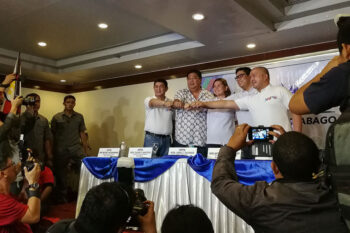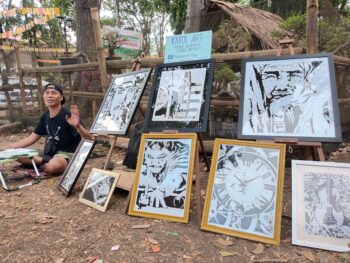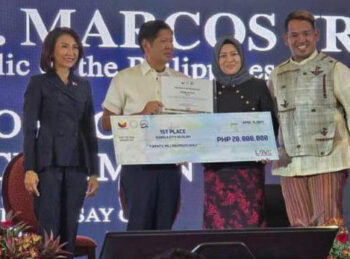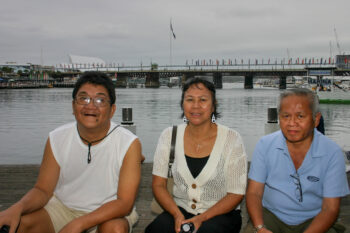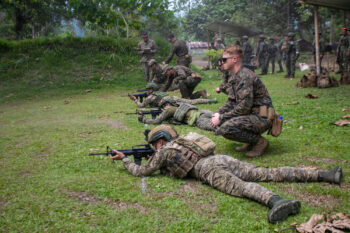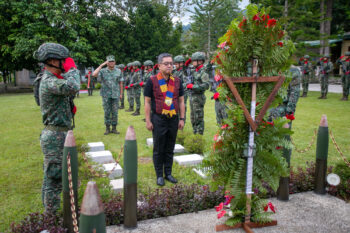MELBOURNE, Australia (MindaNews/18 May) — The Bangsamoro Basic Law (BBL) is expected to be enacted by Congress before the next State of the Nation Address (SONA) of President Aquino. Meantime however, some provisions in the Comprehensive Agreement on the Bangsamoro (CAB) have already invited scrutiny from Constitutional Law experts such as Fr. Joaquin Bernas, S.J. and Sen. Miriam Defensor-Santiago. Pertinently, the Philippine Constitution Association recently described the CAB as “littered with constitutional infirmities.” The Transition Commission (TC) certainly faces a huge challenge to “accommodate and entrench” any contested provisions of the BBL within constitutional parameters.
Amending or revising the Constitution is an immensely unsettling undertaking. The country has stubbornly avoided this path for the 1987 Constitution despite the various Cha-Cha movements that sprouted along the way. Indeed, this quality of immovability makes the words “accommodate” and “entrench” associated with the amendment process seem misplaced. An underlying utilitarian motivation behind the BBL is hard to ignore for any amendment proposals arising from it is palpably a mere step to overcome potential Constitutional objections.
Such a limited approach to the amendment process is objectionable because it overlooks the significance for a nation-state to have a written constitution. I would like to believe that the Constitution means so much more than a piece of legal document that can be trifled with.
It is generally known that a constitution establishes the institutional allocation of government power. More profoundly though, a nation’s constitution embodies its peoples enduring values and principles. In the 1987 Constitution for example, two legacies of the Filipinos’ victory over 20 years of dictatorship are firmly entrenched, i.e. direct democratic participation and respect for human rights. Indeed, this monumental document signifies the Filipino nation’s character, our people’s soul. Clearly, its provisions cannot be altered simply to “accommodate” transitory contingencies.
Nevertheless, whether a thorough reform of the 1987 Constitution should be undertaken is still a legitimate question to ponder on. Its Preamble states that Filipinos desire “to establish a Government that shall embody our ideals and aspirations.” A corollary of this goal is the intent “to prohibit political dynasties” (Section 26 of Article II). No need to elaborate here but the current government certainly does not embody our ideals and aspirations whilst traditional elites continue to have a firm grip on the country’s political system. These two unfortunate realities clearly point to an anomalous area in the Constitution that begs to be addressed.
A more organic irregularity in the Constitution was illustrated by Professor Raul C. Pangalangan in an article published in the National Taiwan University Law Review [Vol. 4: 3, 2009], wherein he wrote about a “built-in contradiction between the economic and the governance clauses of the constitution.” The Constitution’s passionately nationalist stand with regard to socio-economic matters and its avowed protectionism against foreign interests seems to project a partiality for an “expanded state.” Yet in allocating governmental powers, a maze of check and balance provisions have been instituted to actually form a “shrivelled state.” Essentially, the Constitution has established a schizophrenic state which is once again a sad reality that clearly yearns for remedial action.
Clearly, the changes required cannot be attained via simple amendments. Therefore, the utilitarian treatment of the amendment process in the CAB can hardly be justified given that a complete overhaul of the Constitution is warranted.
Obviously, the revision process cannot deviate from the procedure prescribed in the Constitution [ARTICLE XVII]. However, it can be augmented to ensure the widest opportunity for the public to deliberate and reflect as well as to actively participate in the drafting process. Time should not be bound by anything less than allowing the people to take ownership of the revision process itself. This way Filipinos will see themselves not merely as passive observers in the sidelines but as continuing stakeholders to the Constitution’s evolution.
Hence, I suggest a pre-Constitutional Convention phase be added to the whole revision process. The Philippine Association of Law Schools (PALS) could be officially tasked to produce a working draft of the revised Constitution. Members of this organization could conduct grassroots consultations at the provincial level. Summarized provincial findings shall then be pooled at the national level and out of this the PALS could produce a working draft. The latter shall then be used as a starting point for the eventual Constitutional Convention. This additional preliminary stage not only significantly expands public participation but also professionalizes the writing process.
The next phase could be any of the procedures prescribed in the Constitution. I suggest only two modifications. The first is to use the PALS as an official consultant during the proceedings. Second, for the campaign period not be treated as a simple yes or no proposition. I think this time should be spent explaining to the people that the revision of the Constitution is not a zero-sum game. On the contrary, the outcome of this process is about ALL Filipinos forming a strong democratic nation.
Indeed, a written constitution is the unequivocal proof of the people’s decision to constantly strive for social cohesion and integration amidst the robust diversity among them. Sadly and without even realizing it, overeager campaigners for the BBL could be pushing Filipinos, Muslims and Non-Muslims alike, towards the opposite direction.
(MindaViews is the opinion section of MindaNews. PeaceTalk is open to anyone who wants to contribute his/her share to peace building in Mindanao. Atty. Michael Henry Ll. Yusingco is a practicing lawyer. He is presently completing a Masters of Law and Development in Melbourne Law School. He recently published a book entitled, Rethinking the Bangsamoro Perspective)


